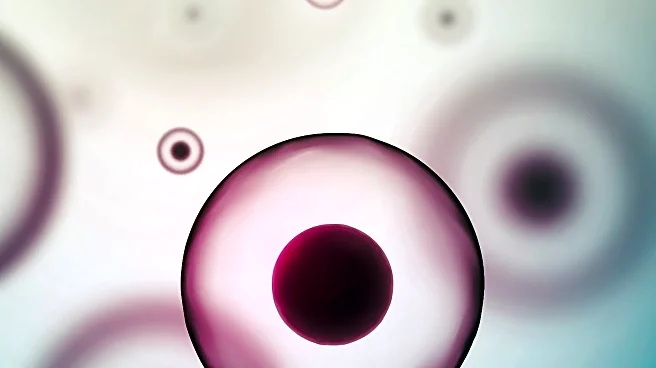What's Happening?
Research from Johns Hopkins University has identified self-reactive CD4+ T cells as a potential cause for some patients' inability to achieve undetectable HIV levels despite antiretroviral therapy. These
cells release viral RNA that persists in the bloodstream, leading to nonsuppressible viremia. The study involved eight patients whose treatment did not reduce HIV to undetectable levels, revealing that the issue is not due to missed medication doses or drug resistance.
Why It's Important?
This discovery provides new insights into the challenges of managing HIV, highlighting the complexity of achieving viral suppression. Understanding the role of self-reactive T cells could lead to more targeted therapies, improving outcomes for patients with persistent viremia. The findings may influence future research and treatment strategies, potentially reducing the burden of HIV on healthcare systems.
What's Next?
Further research is needed to explore the mechanisms behind self-reactive T cells and their impact on HIV treatment. Developing therapies that target these cells could offer new hope for patients struggling with nonsuppressible viremia. Collaboration between researchers and healthcare providers will be essential to translate these findings into clinical practice.
Beyond the Headlines
The study raises ethical considerations about personalized medicine and the potential for tailored treatments based on individual immune responses. Long-term implications include shifts in HIV management strategies and the development of more effective therapies.











